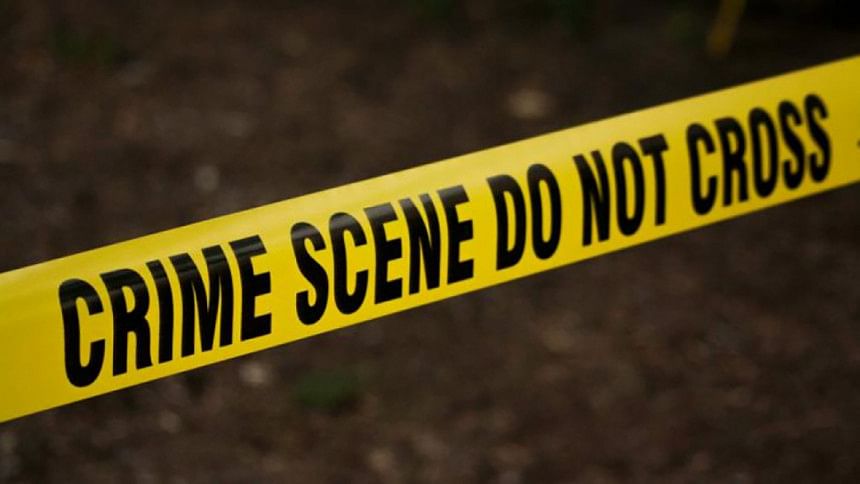Released top criminals at it again

Nasir Biswas, a 26-year-old mason, was walking close to the Martyred Intellectuals' Graveyard in the capital's Mohammadpur on the evening of September 20.
Criminals attacked and stabbed him multiple times around 6:30pm. He was rushed to the Dhaka Medical College Hospital where doctors pronounced him dead around 8:45pm.
Nasir's brother, Sumon Biswas, yesterday said his brother was murdered by some associates of Imamul Hasan Helal alias Pichchi Helal over a previous enmity.
"Multiple eyewitnesses informed me that Helal was at the scene during the stabbing," he told The Daily Star.
Sumon, however, could not confirm the specifics of the previous enmity.
He lodged a murder case at Mohammadpur Police Station on September 21, naming six suspects, including Helal.
Iftekhar Hasan, officer-in-charge of Mohammadpur Police Station, said the complainant in the FIR mentioned that Helal was present at the crime scene.
"We have launched an investigation and are already collecting footage to determine Helal's involvement in the murder. He has since gone into hiding," he told The Daily Star.
Helal was listed as one of the top 23 criminals by police in 2001.
Then a Chhatra Dal leader, Helal was arrested on January 12, 2000. He was released on bail on August 16 this year.
Several residents of Mohammadpur have alleged that Helal's associates have been intimidating local business owners to assert dominance in the area since his release.
According to the Department of Prisons, Helal is among 43 top criminals and militants, who secured bail in different cases after the fall of the Awami League government on August 5.
Among these criminals are Abbas Ali alias Killer Abbas of Mirpur, Sheikh Mohammad Aslam alias Sweden Aslam of Tejgaon, Sanjidul Islam alias Emon of Hazaribagh, Khandaker Nayeem Ahmed alias Tipton and Khorshed Alam alias Rasu alias Freedom Rasu.
On December 26, 2001, the home ministry released the names of 23 top terrorists, including Abbas, Helal, Tipton, and Freedom Rasu. The four were accused in many cases, including for murder and attempted murder.
Brig Gen Syed Muhammad, inspector general of prisons, said they freed some top criminals after receiving release orders from courts.
"The law enforcement agencies might be able to give further details regarding the bails," he told this newspaper recently.
Tawohidul Haque, associate professor at Dhaka University's Institute of Social Welfare and Research, said notorious criminals used to control criminal activities from within jails.
He warned that their release on bail could lead to a rise in criminal activities.
"The authorities must closely monitor whether those freed are reviving their old criminal networks. If they are found doing so, they should be arrested again as soon as possible."
Sources in police said top criminal Ibrahim Khalil alias Killer Ibrahim, who had been hiding abroad, returned home after mid-August and resumed his criminal activities.
A leader of Bhashantek Slum, requesting anonymity, said Ibrahim's associates locked several rickshaw garages in the area for tolls.
"They [Ibrahim's men] unlock the garages only if the owners pay at least Tk 70,000. Sometimes, their demands go up to Tk 2 lakh."
The leader also said that Ibrahim's men collected tolls from building owners in Bhashantek, and recently extorted Tk 2 lakh to Tk 3 lakh each from landlords by threatening to set fire to or vandalise buildings if they were not paid the money.
Shah Md Foysal Ahmed, OC of Bhashantek Police Station, said they were yet to receive any specific complaints regarding Ibrahim's criminal activities. "We will definitely take action once we receive specific information."
Enquired about the bail of notorious criminals, a top police official said that they had been busy with addressing the force's internal issues and maintaining law and order after August 5 and that they were waiting for the interim government's decision in this regard.
He said many top criminals and militants have been freed recently as their jail terms ended.
"The interim government also recently directed the police to adopt a zero-tolerance policy against top criminals and militants. We have stepped up our vigilance across the country and action will be taken against anyone carrying out criminal activities … no criminal will be spared," the official told this newspaper.
On September 10, Inspector General of Police Mainul Islam instructed all police units to adopt a "zero tolerance" policy against militancy and criminal activities.


 For all latest news, follow The Daily Star's Google News channel.
For all latest news, follow The Daily Star's Google News channel. 



Comments